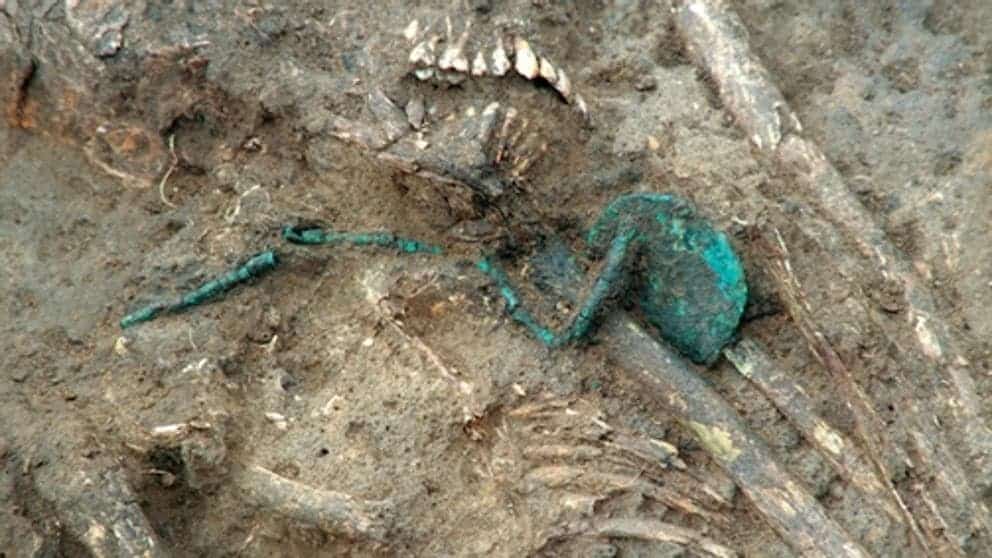More than 6,500 years ago, in what is now northern Poland, the wealthy already ate much better than the poor, according to a new study. The findings show that a wealth gap existed much earlier than we thought and provide insights on some of Europe’s earliest farmers.

Chelsea Budd from the Umeå University in Sweden and her colleagues looked at 6,600-year-old gravesites in the town of Osłonki to try to determine whether wealth inequality existed in these ancient societies. A quarter of them had been buried with copper beads, pendants, and headbands, according to their findings.
However, researchers were unsure whether this inequality in death translated into a wealth gap in life. Wealthy graves may reflect funerary donations to valued community members not necessarily their wealth in life, they argued. That’s why they took the study a step further.
Budd and her team examined stable isotopes from different burials at Osłonki. These are chemical elements such as carbon and nitrogen incorporated into someone’s skeleton that vary based on their diet.
“Initially, we were just interested in studying the food they ate to understand the development of farming,” said Budd in a statement.
However, the findings were very interesting. Those who had been buried with valuable beads and elaborate copper artifacts seem to have been wealthier in life as well as in death. The isotopes show that they probably had better access to cattle from high-quality pastures.
Furthermore, as agricultural land is often inherited, the likelihood that this inequality is multigenerational increases. The researchers believe that these high social classes probably are the descendants of the first humans that arrived in the Polish town, who would have taken the best pastures.
“We have uncovered some of the earliest evidence for a direct link between social status and long-term diet in prehistoric Europe,” said Budd.
“We are witnessing the emergence of social and economic inequality in early prehistoric communities – the ‘haves’ and the ‘have nots’ – at a time much earlier than we thought.”
Budd and her team argued that farming wealth probably translated into more trading opportunities and material wealth, as most of the valuable grave goods were imported over long distances, with the copper needed to manufacture the artifacts originating far away in south-central Europe.
The town of Osłonki lasted for around 200 years, experiencing a rise in conflict and the construction of a wall and a ditch. Finally, around 4,400 BC, it was abandoned alongside many other communities in the region. This triggered the breakdown of the trade networks that introduced valuable goods into Northern Europe.
The study was published in the journal Antiquity.









